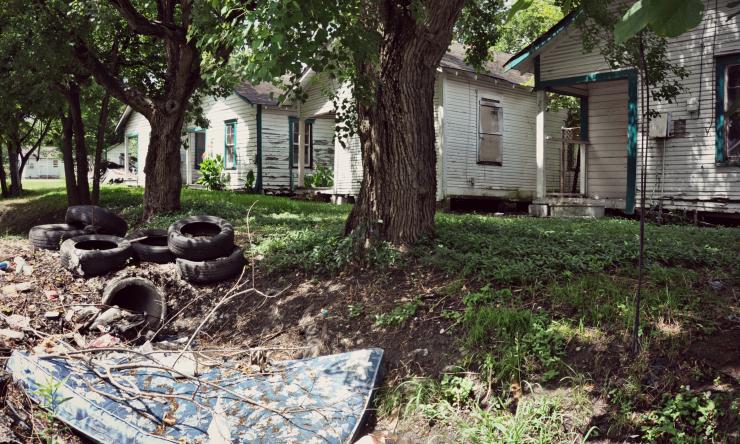Coronavirus Research
The Section of Tropical Medicine is largely dedicated to basic, translational and applied research towards the development of new drugs, diagnostics, and vaccines in the treatment of neglected tropical diseases and emerging infections including COVID-19.
Education
Do you have a desire to make a difference in the lives of the world’s poorest people, help shape public policy, become part of a larger global health movement and enhance your overall knowledge?
Through our educational programs, current and future scientists, doctors, and policymakers are learning about all facets of tropical medicine.
Laboratory Research
Our researchers are working to develop drugs, diagnostics, and vaccines to treat and prevent the world's most prevalent diseases.
Over the past 15 years our researchers have led the development of new vaccines to combat NTDs. Through their activities a human hookworm vaccine is in phase 1 clinical trials as is a schistosomiasis vaccine. Vaccines against leishmaniasis, Chagas disease, and other soil-transmitted helminths are in development.
Policy and Advocacy
The National School of Tropical Medicine works to bring attention to neglected tropical diseases, largely ignored because so many of their victims are among the poorest people in the world. NSTM faculty advocate increased awareness, education, and allocation of resources to fight neglected tropical diseases and neglected infections of poverty and effect their reduction, elimination, and eradication.
Clinical
National School of Tropical Medicine clinicians diagnose and treat patients with tropical diseases at our clinics and in the field. The National School of Tropical Medicine at Baylor College of Medicine has established a Tropical Medicine Clinic at the Harris Health System Smith Clinic in the Texas Medical Center.
More Than One Billion Suffer From Neglected Tropical Diseases and Diseases of Poverty
Baylor College of Medicine is working to solve global health problems through education, research, clinical work, and advocacy.
Dean's Message
Our National School of Tropical Medicine is one of the first of its kind in North America devoted to the neglected diseases that disproportionately afflict "the bottom billion," the world's poorest people who live below the World Bank poverty level.
We are also addressing neglected infections of poverty in the United States through establishing unique tropical disease training and clinics in collaboration with Baylor College of Medicine and the Harris Health System and preventing these infections as they emerge along the Gulf Coast and South Texas. Among our clinical and epidemiologic discoveries are the findings of dengue fever and typhus transmission in Houston, helminth infections in the American South, Chagas disease and relapsing fever transmission across Texas, and new clinical syndromes caused by West Nile virus (WNV) and other arbovirus infections. We have also created at the Baylor Clinic mechanisms and clinics to help travelers to and from tropical disease-endemic countries.
I believe that at several levels America has a duty to harness our entrepreneurial spirit, our international leadership in research and development, and our most precious resource – the intellectual capital of our populace to be a leader in training the next generation of global public health scientists and health care providers. We need individuals who either have the expertise to build needed new technologies or who will understand how to apply these new technologies to public health practice.
At our National School, now linked to the Texas Children's Hospital Center for Vaccine Development, we are pioneering the development and clinical testing of new vaccines to combat intestinal nematode infections, schistosomiasis, Chagas disease, leishmaniasis, and coronavirus infections. During the COVID-19 pandemic our scientists developed a low-cost recombinant protein COVID-19 "people's vaccine" for global health that was released for emergency use in India and administered to its pediatric population. The vaccine was also approved in Botswana in Sub-Saharan Africa. Our COVID-19 vaccine technology is literally reaching millions of people in the world's low- and middle-income countries. Scientists in our diagnostics group are working to develop or improve new technologies for a variety of neglected tropical disease pathogens.
In my opinion, there is unprecedented interest by young people to solve global public health problems of importance to the developing world. We need now to harness that youthful energy and channel it appropriately. Recently I wrote in PLOS Neglected Tropical Diseases:
"So exactly where and how does a person obtain training in a new type of global public health practice that embraces Affymetrix chips as a diagnostic tool for human African trypanosomiasis or river blindness; tests of a new drug for the treatment or chronic Chagas disease; planning for community-based drug distributors in order to add mebendazole and praziquantel to ivermectin for NTD control together with long-lasting insecticide-treated nets for co-endemic malaria; or the development, technology transfer, and clinical testing new recombinant vaccines for malaria, tuberculosis, or hookworm infection? Similarly, where does an individual become trained to simultaneously learn to conduct high throughput screening for new antimalarial drugs, or prepare batch production records for the fermentation of a new recombinant hookworm antigen?"
Until recently, comprehensive training in global health, particularly with focus on neglected tropical diseases, could not be found in the United States. Baylor College of Medicine and Texas Children's Hospital have come together to change that. The National School of Tropical Medicine will be the place for individuals who want to make a difference in the lives of the world's poorest people. In collaboration with the Baylor College of Medicine Healthcare Policy Institute and James A. Baker III Public Policy Institute at Rice University we are also shaping a new public policy for tropical infections and their impact on vulnerable and impoverished populations. We have also led efforts to combat rising antivaccine and antiscience disinformation. Our policy documents and op-eds have appeared in the New York Times, Washington Post, Los Angeles Times, Houston Chronicle, Foreign Policy, and our writings reviewed in the New Yorker among other leading news outlets. Our faculty and scientists appear regularly on cable news channels, including CNN, MSNBC, BBC, NPR, PBS, and the major networks, as trusted experts on COVID-19 and emerging and neglected infections.
This website provides a brief overview of the mission and vision of the National School of Tropical Medicine and our programs. I encourage all who are interested to visit often, follow our progress and keep informed about programs and opportunities that may be right for you.
Peter J. Hotez, M.D., Ph.D.
Professor and Founding Dean
National School of Tropical Medicine
Accreditation
Baylor College of Medicine is accredited by the Southern Association of Colleges and Schools Commission on Colleges (SACSCOC) to award masters and doctorate degrees. Questions about the accreditation of Baylor College of Medicine may be directed in writing to the Southern Association of Colleges and Schools Commission on Colleges at 1866 Southern Lane, Decatur, GA 30033-4097, by calling 404-679-4500, or by using information available on SACSCOC's website (https://www.sacscoc.org/).









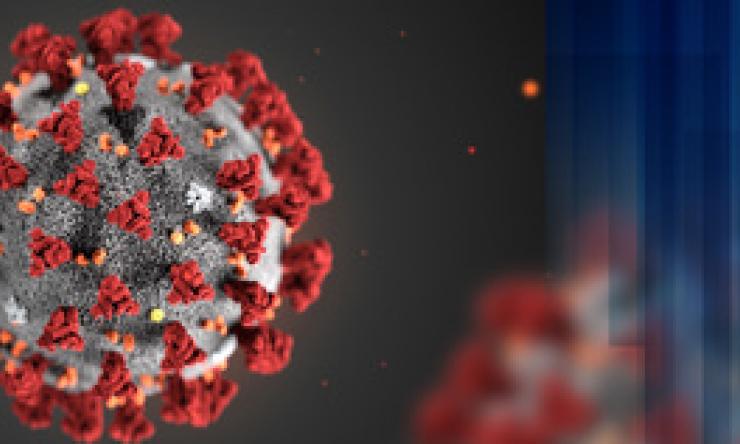
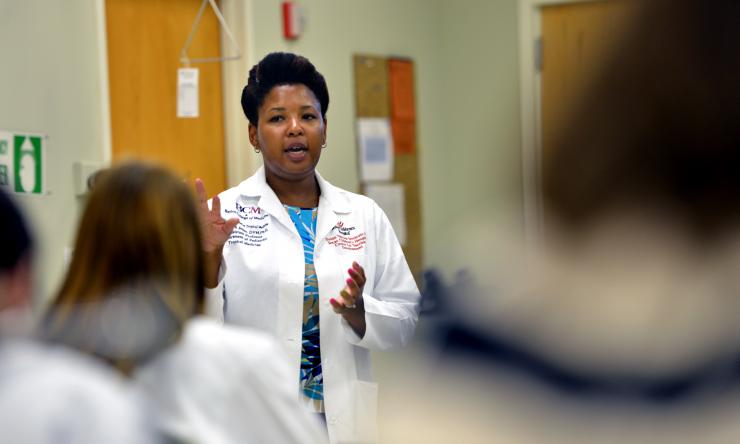
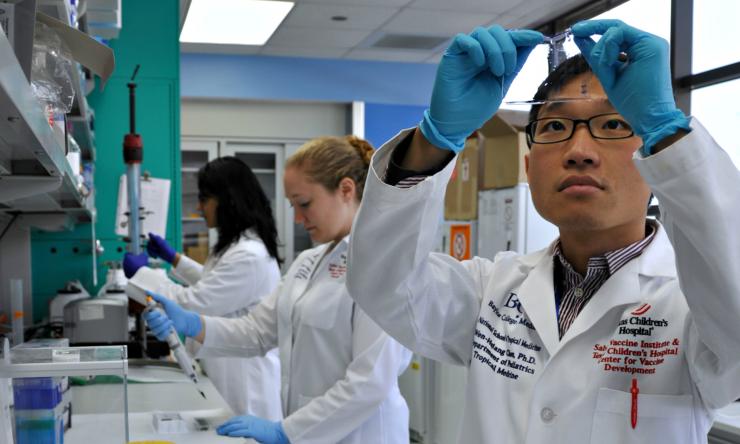
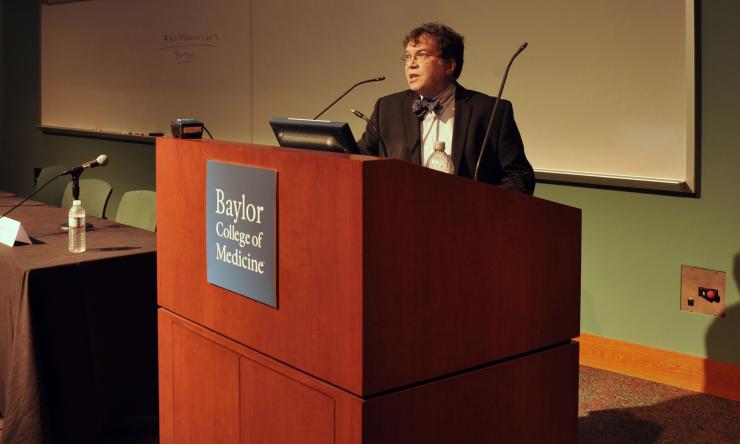
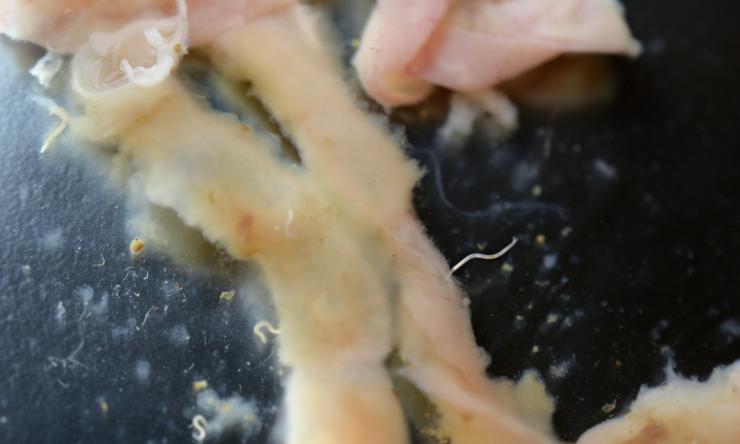
 Credit
Credit